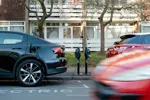A committee of MPs has criticised the Treasury for its inaction over taxing activities such as driving and flying.
The group said that high carbon activities such as driving should be taxed to reduce the level of car use, but still generate large and predictable tax streams.
In its environmental analysis of the 2007 Pre-Budget Report and Comprehensive Spending Review, the House of Commons Environmental Audit Committee said: “The Treasury’s argument that new or higher green taxes are unnecessary, because the Government is doing enough to protect the environment through other policies, is hardly convincing given the Government’s lack of progress in reducing UK carbon emissions over the last decade.”
The committee, which investigates to what extent government departments and public agencies contribute to environmental protection and sustainable development, said: “Even if it were the case that policy across Government was successfully delivering its environmental objectives in full, it would still not be an excuse for the Treasury’s inaction.
"There is always a case for looking at the scope to increase green taxation, since the Government is always in need of tax revenue, and since, as the Treasury accepts, it is better to tax ‘bads’ than ‘goods’.
“Taxes on high carbon activities such as driving and flying can be used to reduce their demand without destroying it, thus helping to achieve environmental objectives while still generating large and predictable tax streams.”
The Government said environment taxes are just one of several possible levers it can introduce to reduce carbon output and it would be wrong to focus solely on such taxes as the committee is doing.
However, it did not dismiss introducing further taxes on motorists. “Where tax is the best instrument to use, the Government will look to shift the burden of tax from ‘goods’ e.g. employment to ‘bads’ e.g. pollution.”
It also pointed out that in the last Budget further fiscal measures, including the significant reform of Vehicle Excise Duty, the taxation of business travel and the setting of future rates of fuel duty; prove that the Government has looked to shift the burden of tax from ‘goods’ to ‘bads’.

















Login to comment
Comments
No comments have been made yet.